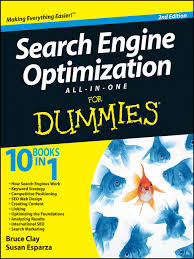Search Engine Optimization (SEO) is crucial for businesses to enhance their online visibility and drive organic traffic to their websites. Content Management Systems (CMS) like Joomla, WordPress, and Magento offer powerful tools for creating and managing websites, but effective SEO requires specific considerations for each platform. This whitepaper will provide a comprehensive guide to optimizing Joomla, WordPress, and Magento websites for search engines.
White Paper: Mastering the Art of SEO — A Comprehensive Guide for WordPress, Joomla, and Magento with Lean Business Development
Executive Summary
In an era where digital presence determines market relevance, Search Engine Optimization (SEO) is no longer optional—it is essential. This white paper provides an in-depth examination of SEO strategies tailored for three leading Content Management Systems (CMS): WordPress, Joomla, and Magento. It combines technical insights, platform-specific best practices, and Lean Business Development methodologies to guide businesses in maximizing their digital visibility and engagement. Furthermore, it highlights how The Art of SEO and consulting services from KeenComputer.com can serve as strategic assets in building robust and scalable SEO infrastructures.
1. Introduction
Businesses increasingly depend on search engines as gateways to consumer engagement and conversion. SEO plays a pivotal role in shaping how and when a business is discovered online. However, successful SEO is both a science and an art, requiring continuous adaptation to platform nuances, search engine algorithm updates, and user behavior.
This white paper aims to:
- Break down SEO fundamentals
- Offer platform-specific strategies for WordPress, Joomla, and Magento
- Illustrate practical use cases
- Introduce Lean Business Development for iterative SEO improvement
- Showcase how KeenComputer.com and The Art of SEO provide long-term value
2. SEO Fundamentals
To build a successful SEO strategy, businesses must focus on four foundational pillars:
2.1 Keyword Research
Understand what your audience is searching for. Use tools like Google Keyword Planner, Ahrefs, and SEMrush to discover high-intent, low-competition keywords.
2.2 On-Page Optimization
This includes:
- Unique title tags and meta descriptions
- Proper use of header tags (H1-H3)
- Optimized image alt texts
- Internal linking structures
2.3 Technical SEO
Ensure search engines can crawl, index, and render your site efficiently by:
- Improving page speed
- Enabling mobile responsiveness
- Submitting XML sitemaps
- Implementing structured data (Schema.org)
2.4 Off-Page SEO
Backlinks from high-authority domains, brand mentions, and directory citations contribute to domain trust and ranking potential.
3. Platform-Specific Strategies
3.1 WordPress
Overview: WordPress is widely adopted due to its user-friendly interface and plugin ecosystem.
SEO Tools: Yoast SEO, Rank Math, WP Rocket
Best Practices:
- Use SEO-friendly permalinks
- Implement structured data with schema plugins
- Minimize plugin bloat to maintain site speed
- Maintain a regular blog strategy
Use Case: A digital agency using WordPress improved organic traffic by 300% by optimizing content with Yoast and implementing internal linking.
3.2 Joomla
Overview: Joomla provides flexibility and is favored by developers for creating structured, multilingual websites.
SEO Tools: SH404SEF, OSMap, EFSEO
Best Practices:
- Enable SEF URLs and URL rewriting
- Customize metadata per article
- Implement breadcrumbs and hierarchical menus
- Submit XML sitemap to Google Search Console
Use Case: A regional tourism board leveraged Joomla to enhance localized SEO, increasing event registrations by 50%.
3.3 Magento
Overview: Magento is an enterprise-grade eCommerce platform requiring more technical management.
SEO Tools: Mageworx SEO Suite, Amasty SEO Toolkit
Best Practices:
- Implement canonical tags to avoid duplicate content
- Optimize product titles and category metadata
- Compress images and utilize lazy loading
- Use breadcrumb navigation to aid crawling
Use Case: A fashion retailer boosted sales by 20% after implementing structured product markup and canonical tags.
4. Integrating Lean Business Development (LBD)
Lean Business Development emphasizes rapid experimentation, validated learning, and iterative improvement. When applied to SEO:
4.1 Build
Quickly deploy SEO features like schema markup and caching plugins.
4.2 Measure
Monitor KPIs via Google Analytics, Google Search Console, and heatmaps.
4.3 Learn
Assess what elements improve SEO rankings, engagement, and conversions.
4.4 Iterate
Refine content, technical setups, and user experience based on data insights.
Benefits:
- Higher ROI
- Continuous improvement
- Risk mitigation through small, data-backed changes
5. Strategic Insights from The Art of SEO
This foundational text covers:
- Algorithmic behavior and ranking models
- Advanced technical SEO (e.g., crawl budget, site hierarchy)
- Global SEO and content localization
- SEO for enterprises and complex websites
How it Helps:
- Provides a framework for scalable SEO strategies
- Enables teams to align SEO with business goals
- Clarifies penalties and recovery strategies
6. How KeenComputer.com Supports Your SEO Journey
Expertise: KeenComputer.com specializes in CMS implementation, optimization, and SEO alignment.
Services:
- SEO audits and performance benchmarking
- Plugin/module integration and custom development
- Structured data implementation
- Content strategy and analytics integration
Value Proposition:
- Turnkey solutions for WordPress, Joomla, and Magento
- Hands-on guidance based on The Art of SEO
- Alignment with Lean principles for sustainable growth
7. Recommendations
To capitalize on SEO for your CMS platform:
- Conduct a full SEO audit
- Prioritize high-impact improvements
- Implement Lean cycles of optimization
- Utilize guidance from The Art of SEO
- Partner with KeenComputer.com for customized strategy and execution
Conclusion
Effective SEO is a strategic differentiator. By leveraging platform-specific best practices, adopting Lean Business Development principles, and drawing on the expertise of KeenComputer.com and foundational texts like The Art of SEO, businesses can establish a dominant digital presence. SEO is a journey—and with the right tools and partners, success is not only attainable, but scalable.
References
- Enge, E., Spencer, S., & Stricchiola, J. (2015). The Art of SEO. O'Reilly Media.
- Moz Blog: https://moz.com/blog
- Google Search Central: https://developers.google.com/search
- WordPress.org: https://wordpress.org
- Joomla.org: https://www.joomla.org
- Magento DevDocs: https://developer.adobe.com/commerce
- KeenComputer.com: https://www.keencomputer.com
